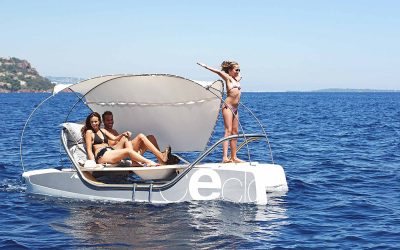Climate change has dramatic effects on our oceans and marine ecosystems. By altering the global climate, it disrupts navigation conditions, affects underwater biodiversity, and changes water quality. The impact on nautical activities is becoming increasingly tangible, both in terms of safety for participants and the preservation of marine environments. This article explores the impact of climate change on nautical activities, highlighting the consequences for marine ecosystems and navigation conditions, and the need to adopt more sustainable practices to protect our oceans.
Ecological Consequences of Climate Change on Marine Ecosystems
Global warming leads to rising sea levels and ocean acidification, directly impacting marine fauna and flora. This degradation of marine ecosystems also directly affects nautical activities. Regions renowned for their coral reefs, fish, and underwater landscapes are increasingly vulnerable to these changes. The decline in coral reefs reduces the opportunities for marine wildlife observation for divers and swimmers, while also diminishing the tourist appeal of many coastal areas. Additionally, marine pollution, exacerbated by storms and flooding, deteriorates water quality, compromising recreational nautical activities, such as swimming and boating.
The Effects of Climate Change on Navigation Conditions
Climate change also directly impacts navigation conditions. Higher temperatures lead to more extreme weather phenomena, such as storms and massive waves. These dangerous conditions make certain navigation areas inaccessible or risky for water sports enthusiasts, whether for sailing, canoeing, kayaking, or pedal boating. Increasingly frequent droughts also affect water levels in lakes and rivers, limiting access to recreational areas. Similarly, rising sea levels can submerge beaches and port infrastructures, reducing opportunities for nautical activities along certain coasts.
The Need for Sustainable and Environmentally-Friendly Practices
In light of these challenges, it is crucial to rethink our nautical activities to make them more sustainable and environmentally friendly. Transitioning to more eco-friendly technologies, such as electric motors, is a critical first step. By replacing polluting combustion engines, these solutions help preserve water quality and reduce the carbon footprint of nautical activities. Products like those offered by Ceclo represent this shift towards more ecological practices. Ceclo’s electric-assisted pedal boats and electric catamarans provide gentle navigation solutions, free from noise, odors, and pollution. These products, made entirely from durable and environmentally-friendly materials, allow for moments of relaxation on the water while minimizing ecological impact. Moreover, these boats require no licenses and are accessible to all, making them an ideal alternative for more responsible water recreation.
By choosing electric boats, water sports enthusiasts contribute to the protection of marine ecosystems while enjoying a smooth and safe navigation experience. Now more than ever, it is essential to prioritize environmentally responsible practices to preserve our oceans for future generations.
Conclusion
Climate change poses a serious threat to marine ecosystems and nautical activities. However, by adopting more environmentally-friendly technologies, such as electric boats, and changing our behaviors, we can preserve natural spaces while continuing to enjoy our water-based leisure activities. Every action, no matter how small, contributes to the protection of our planet and the sustainability of nautical activities. In this regard, products like Ceclo provide a great alternative to navigate peacefully while minimizing ecological impact.




